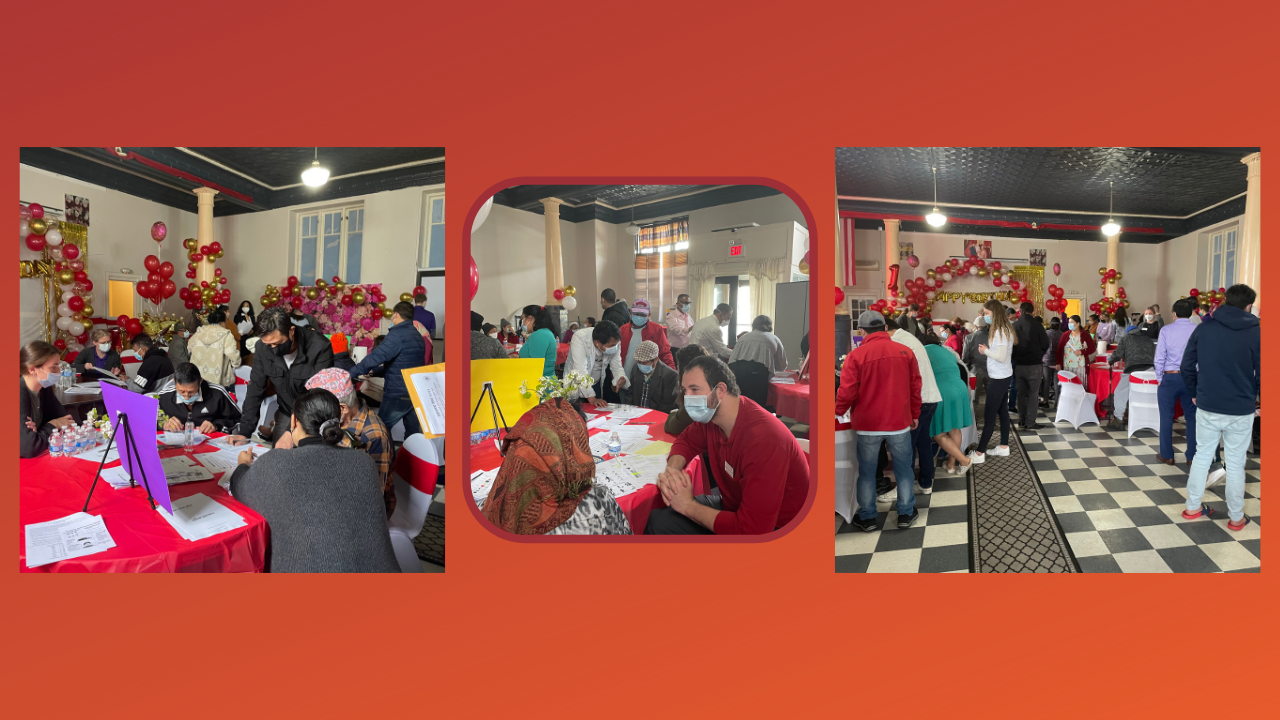University Faculty and Students Collaborate with Bhutanese Community to Offer Health Fair

On Saturday April 23, 2022, occupational therapy and physical therapy faculty members and students from the Panuska College of Professional Studies at The University of Scranton, in collaboration with the Bhutanese Cultural Foundation of Scranton Association, hosted a Health Fair at the Foundation’s headquarters at 705 Pittston Ave in Scranton. The Bhutanese Cultural Foundation aims to provide helpful programs for individuals to attend as well as organize community outreach initiatives to assist members of the Scranton and surrounding areas Bhutanese community.
“Since starting this program I have seen that the people who attend our events are very grateful to have opportunities like this available for them to partake in,” said Chandra Sitaula, founder of the Bhutanese Cultural Foundation. “They are very engaged and enthusiastic about the programs that we put together.”
The focus of the Health Fair event was to provide screening and health education for the Bhutanese refugee community, including: cardiovascular health and prevention, prenatal/postpartum screening and health, balance and fall risk/assessment, physical activity and fitness, stress reduction, activities of daily living, sleep quality and general infection control. This spring event is an expansion of the work of professor of physical therapy Lori Walton, Ph.D., DPT, MScPT, MPH, to provide health screenings and information to refugee communities that she and her students undertook in a Fall 2021 Community-Based Learning (CBL) course.
Three PT student leaders developed the handouts, checklists, and screening under faculty supervision. Occupational therapy students also participated in the event as a cross-disciplinary service. One of the event's faculty coordinators, occupational therapy assistant professor Michael Bermudez, Ed. D., OTR/L, said that the program was originally started as a way for occupational therapy and physical therapy students to interact disciplinarily in a community-based learning setting.
Walton said that the event took a great deal of collaborative effort to put together over four months, “From students researching to professors and Chandra [president of the Bhutanese Cultural Foundation] organizing students and participants, it was a large undertaking and collaboration,” Walton said.
Physical therapy faculty specialist Jennifer Schwartz, PT, DPT, NCS said that events like this are essential in preparing PCPS students for the workplace after graduation.
“Every opportunity to interact with people of different backgrounds allows them [students] to grow and be prepared,” Schwartz said. “We know all of our students are textbook ready but it is a whole other story when taking those skills and putting them to use in the field.”
The table fair brought attention to a variety of focused health issues through a series of surveys that participants took while traveling through each student-led station. Each station also had a Nepali-speaking translator that helped University students and Bhutanese participants engage effectively and with cultural sensitivity with survey questions and health solutions that came about from the surveys. Second-year physical therapy graduate student leader Hailey Kenyon operated a table that focused on gathering participants’ vital signs and providing them with feedback.
“Vitals are extremely important and can tell us a lot about a person's overall health,” Kenyon said. “Right now, we are taking blood pressure and measuring blood oxygen levels to see if they are good or not and if they should seek medical attention.”
Other stations at the event focused on how to sleep better, better wash hands and get better engaged in community and leisure activities. Student organizers and leaders for the event included Alesia Heimes (PT), Brianna Abrams (PT), Hailey Kenyon (PT), Sydney Zamboni (OT), Kyla Avant (OT), and Kathleen Diverio (OT).
Faculty and staff involved in organizing the program included: physical therapy professor Lori Walton Ph.D., DPT, MS, MPH(S), CLT; physical therapy faculty specialist Jennifer Schwartz, PT, DPT, NCS; assistant vice president of Community Engagement & Government Affairs and Community-Based Learning board chair Julie Schumacher Cohen; physical therapy department chair Renee Hakim, PT, Ph.D., NCS; and occupational therapy assistant professor Michael Bermudez, Ed. D., OTR/L.
“What Chandra Sitaula has done with the Bhutanese Cultural Foundation is remarkable in providing a Bhutanese-run community hub. We are glad to partner with him to provide services and resources that the Bhutanese community identifies as priorities and to do so in culturally-sensitive ways and with Nepali language translation. We have learned so much from our refugee neighbors through these kinds of partnerships and we can see here, especially how this kind of CBL helps prepare our students to be health professionals in a globally interconnected world,” said Schumacher Cohen.
Community-based learning collaborations such as this offer University of Scranton students with opportunities to engage with and learn from the greater Scranton community while also using the skills and information from their courses in a real-world setting to address a community-defined need.
For more information on the Bhutanese Cultural Foundation visit: bcfsainfo.org
For more information on the Office of Community-Based Learning visit: scranton.edu/cbl






